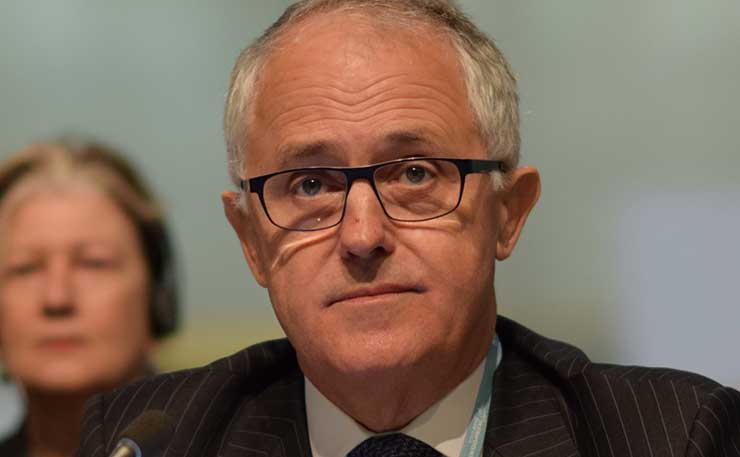With every week seemingly bringing fresh embarrassment, Ben Eltham looks at the core issue that is really plaguing the Turnbull Government.
It’s been a winter of discontent for the government.
The Prime Minister spent last week on tour through Western Australia, a crucial state for the Coalition. WA contains many seats the Liberal Party will need to hold at the next election if it wishes to retain government. But try as he might to talk about the government’s achievements, every question from the media seemed to revolve upon Liberal disunity.
And that was before the leaked tape dropped of his conversation with Donald Trump about the refugee swap.
Many on the left will be outraged by what Turnbull said to Trump, and rightly so. To hear our prime minister callously bargain with the lives of innocent people is horrifying, even terrifying.
But those who have followed Australia’s asylum seeker policies over the years will not be surprised. Turnbull was merely stating the truth about Australia’s immigration policies, which are based upon a policy of official cruelty to asylum seekers, and an overt policy of deception towards the public.
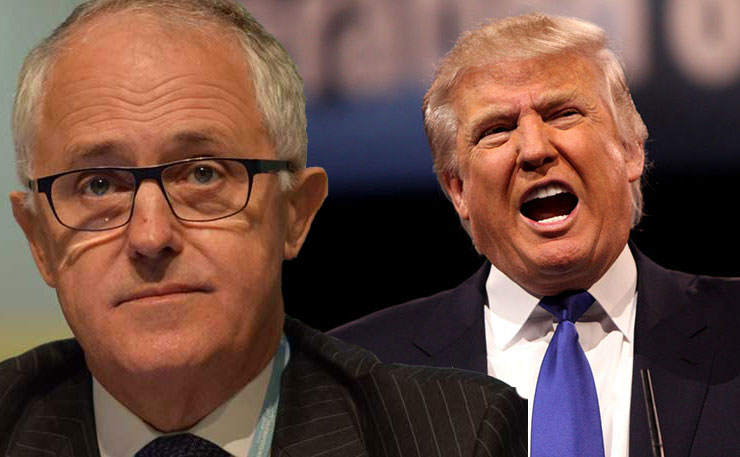
Indeed, the transcript of the tape might even help Turnbull with hardliners and conservatives, such is the debased atmosphere of Australian politics, particularly on the right.
On the other hand, the transcript shows up Turnbull as hypocritical, and that’s a more serious matter. Many voters no longer trust Malcolm Turnbull. They once believed him to be a moderate and a centrist. They also thought he was decisive. In office, he has demonstrated none of these qualities.
Turnbull isn’t helped by the disastrous infighting within his own party. The federal Liberal Party is a basket case. In September, it will have been in government for four years. And yet it is more divided and internally weaker now than at any time since the 1990s.
The problem, once again, is marriage equality. The past week has seen the federal Liberal Party wracked by instability over the issue. Once again, the background is the inexorable ideological division within the party between moderates and conservatives. As Peter van Onselen pointed out in The Australian last week, those divisions are no closer to being healed.
It’s no secret that all is not exactly well inside the Turnbull mothership. Yet another chief of staff, Greg Moriarty, has departed, this time for the plum job of Secretary of Defence. So Turnbull has a brand new chief of staff, career diplomat Peter Woolcott, his third this year. But even if the Prime Minster’s Office were a well-oiled machine, the atmosphere would be tense – for the simple reason that the political tides have turned so decisively against the government.
It must be frightening for Turnbull’s top staffers to watch the political agenda shift so rapidly against the Coalition.
The spectacle of a government dissolving into internal chaos is hardly being welcomed by voters, who remember the calamitous latter stages of the Rudd-Gillard years with something less than fondness.
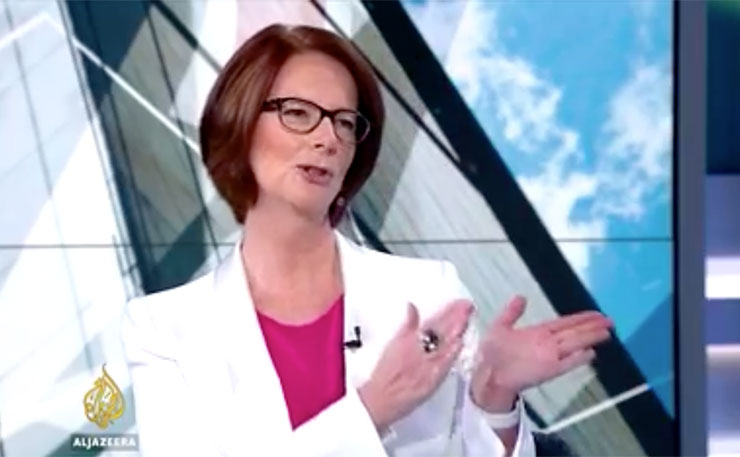
It’s ironic that the issue of marriage equality is now the one causing the government so much trouble. This was an issue that was meant to be put to bed for the government when the vote to hold a plebiscite was lost in Parliament. And, in tactical terms, Turnbull must have thought the issue settled. He did a deal with the moral hardliners on coming to the prime ministership. But that didn’t work. Moderates like Dean Smith are still agitating for a vote on the issue. Conservatives are using gay marriage as a pretext to continue their assault on Turnbull’s legitimacy.
As usual, Turnbull only has himself to blame. If he had simply insisted on a free hand on policy – all policy – on coming to office, he would now be in a position to call on a vote and perhaps even portray himself as the man who finally got equal marriage legislated.
Instead, conservatives have gone on yet another wrecking binge, led by Tony Abbott and Eric Abetz.
But the Coalition’s problems are far greater than crippling disunity. The government has been comprehensively defeated in the battle for ideas. For the first time in a decade, the intellectual terrain has moved conclusively in Labor’s favour. The dominant idea framing politics is no longer national security, economic growth or the budget deficit. It is inequality.
The rise of inequality as a political idea has been building for some years now. In part, it reflects a genuine new consensus amongst economists and sociologists. Intellectuals like Thomas Piketty, Tony Atkinson, Kate Pickett and Richard Wilkinson have shown that inequality is not only increasing in western societies, but that it is a much more damaging trend than was previously realised.
But the rise of inequality has also been noticed by ordinary citizens, who can see for themselves that Australia is becoming increasingly unfair and unequal.
An Essential poll out last week showed that 52 per cent of those surveyed thought Australia was becoming more unequal. That figure included a near majority (43 per cent) of Liberal voters. Only 12 per cent of those surveyed thought “economic and social inequality” was decreasing.
We were provided with some vivid evidence of that with the release of the latest household income and labour dynamics data, known to nerds by the handy acronym of HILDA.
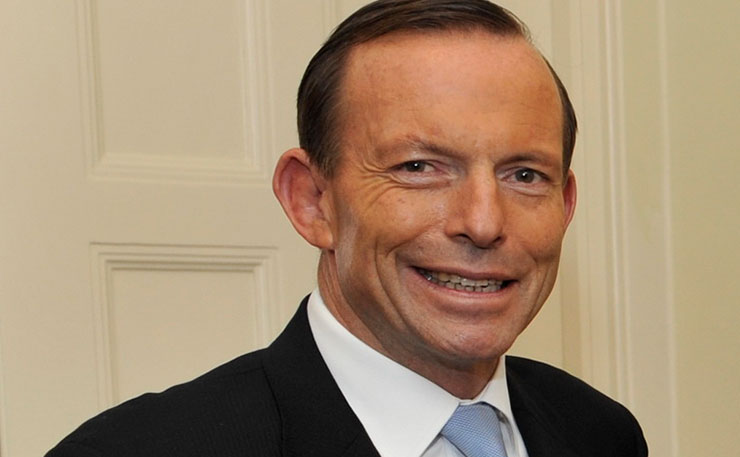
The HILDA data shows a number of things, not all of them consistent. Firstly, income inequality is not as bad as we fear. Australia is not becoming America, or even Britain; stratospheric gains in income for the rich have also been accompanied by small but significant gains in income for the poor.
But secondly, and more seriously, wealth inequality is up – significantly up in the eastern seaboard capitals. There’s no prizes for guessing why. It is due to the housing market, still on a tear due to the Reserve Bank’s low interest rates.
The HILDA data gives us a real-time snapshot of the generation of renters now being created. Home ownership for under-40s is falling off a cliff in Australia’s two biggest cities.
As the Melbourne Institute’s Roger Wilkins wrote this week, “the rate of home ownership among 18 to 39 year olds declined from 36% in 2002 to 25% in 2014. In the same age group, the decline in home ownership has been largest for families with dependent children, falling from 56% to 39%.” In Sydney, home-ownership for 18-39 year olds fell from 30.6 per cent in 2010 to 19.7 per cent in 2014 – a full 10 per cent in just four years. In Melbourne, under 40s homeowners are down to 21.3 per cent, from 27 per cent in 2006.
Wilkins notes that whole classes of workers are now being priced out of home ownership: “In 2014 home ownership was especially rare among community and personal services workers, sales workers and labourers.” Turnbull’s battlers? It doesn’t have quite the same ring.
While house prices climb ever upwards, ordinary household incomes are static. The Guardian’s Greg Jericho pointed out last week that median household income has been flatlining since 2012. Household incomes are now lower than 2009 levels.
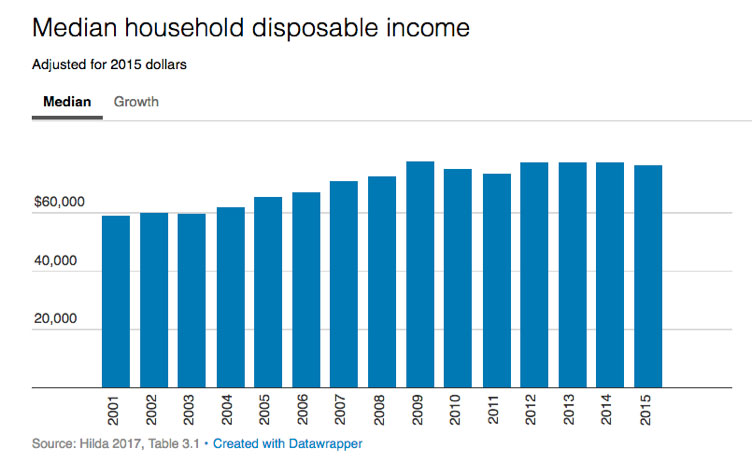
And when you look at the long-term data from the Australian Bureau of Statistics, income inequality has been rising for decades. This graph is by respected social researcher Peter Whiteford at the Australian National University. It shows that inequality has increased markedly since the 1980s.
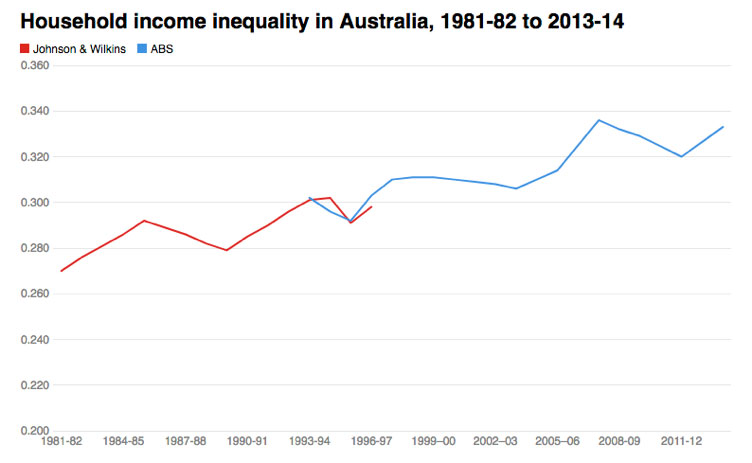
The HILDA data shows why ordinary Australians are so much more pessimistic and hesitant about their own futures now than they were in the Howard years. Decades of policy friendly to employers and property owners have produced an economy where fewer and fewer Australians have a steady, secure job, and where a generation of young people can no longer afford to buy a house. Meanwhile, the rich are getting richer.
The inequality trend is reflected in other aspects of a slowly unravelling social contract. Australian society is more atomised and less resilient than it used to be. Social capital is fraying. Social mobility is declining. This is why Labor’s policy push on inequality is resonating.
In the past two years, the federal ALP has put together a surprisingly radical suite of policies that seek to ameliorate the worst excesses of unrestrained capital. Capital gains tax will be hiked, property tax breaks wound back, superannuation concessions tightened, family trusts reformed, public health safeguarded.
The Coalition has refused to acknowledge the problem of inequality even exists. When pressed on the issue recently, Treasurer Scott Morrison claimed it wasn’t even a problem.
When it comes to inequality, Turnbull and his government simply have no answer. I don’t mean that as a rhetorical flourish. I mean that the Coalition has no policy – not one – that could address the growth of inequality in our society. The government’s signature policy for this term of government is a tax cut to big business.
No wonder voters have tuned out.
Donate To New Matilda
New Matilda is a small, independent media outlet. We survive through reader contributions, and never losing a lawsuit. If you got something from this article, giving something back helps us to continue speaking truth to power. Every little bit counts.

